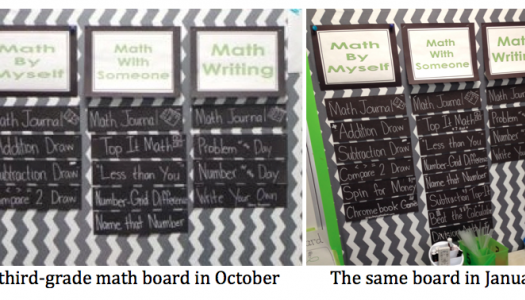How Often Should I Change Math Activities?
Join Our Community
Access this resource now. Get up to three resources every month for free.
Choose from thousands of articles, lessons, guides, videos, and printables.

A question we often hear is “How often should I change math activities on my Daily 3 Math Board?” Ultimately, because each group of students is different, there isn’t a “one-size-fits-all” answer to that question. Instead, here are some considerations to help guide you in deciding what will work best for you and your classroom.
-
Choose a few foundational activities that you can put on the math board right away. They might reinforce number sense or fluency skills, and you can introduce them as you begin the school year. These foundational activities should be ones that can easily be added to or taken off the math board throughout the year once students have been introduced to them.
-
As you plan a pacing guide for the year, think about math activities that would fit within each unit to reinforce skills taught. As you teach the unit, you can introduce these activities at a comfortable pace for you and your students while at the same time determining which ones you can remove from the math board.
-
When considering whether to remove an activity, decide if it is something you will want to put back on the board sometime during the year, and whether your students have had enough time to practice the skill or concept being reinforced. If you do plan to reintroduce an activity to the math board, be sure to make a note to yourself so that you don’t forget.
-
Strive for balance. You don’t want to add or take away too many activities at once, but you also want enough choices to keep students from becoming bored. Remember, the goal is to make math learning fun through activities that allow students to practice previously taught skills and concepts.
- As you decide to remove or add activities on your math board, pay attention to feedback that you receive from your students—you can check in with them during your regular conferring sessions.






